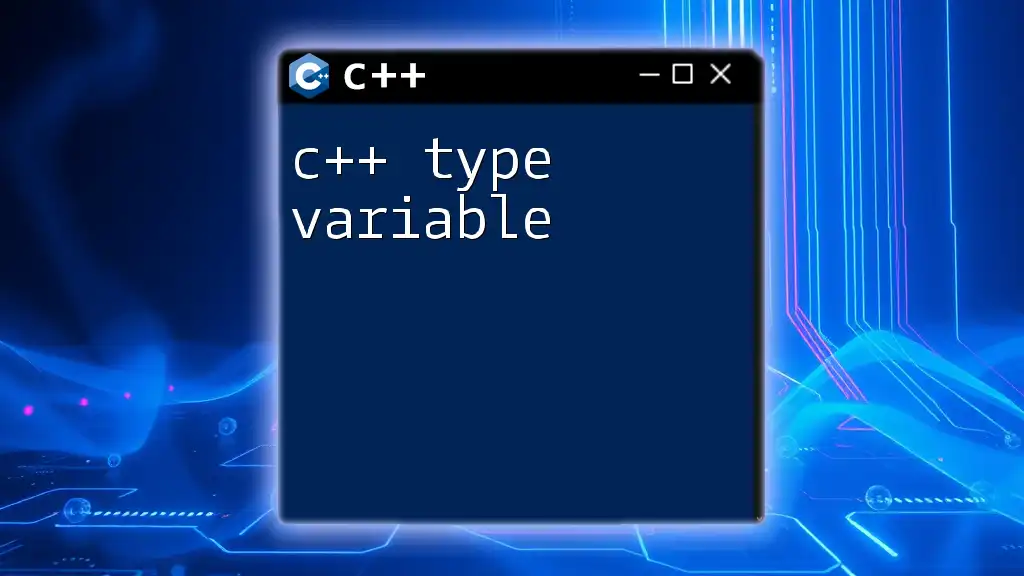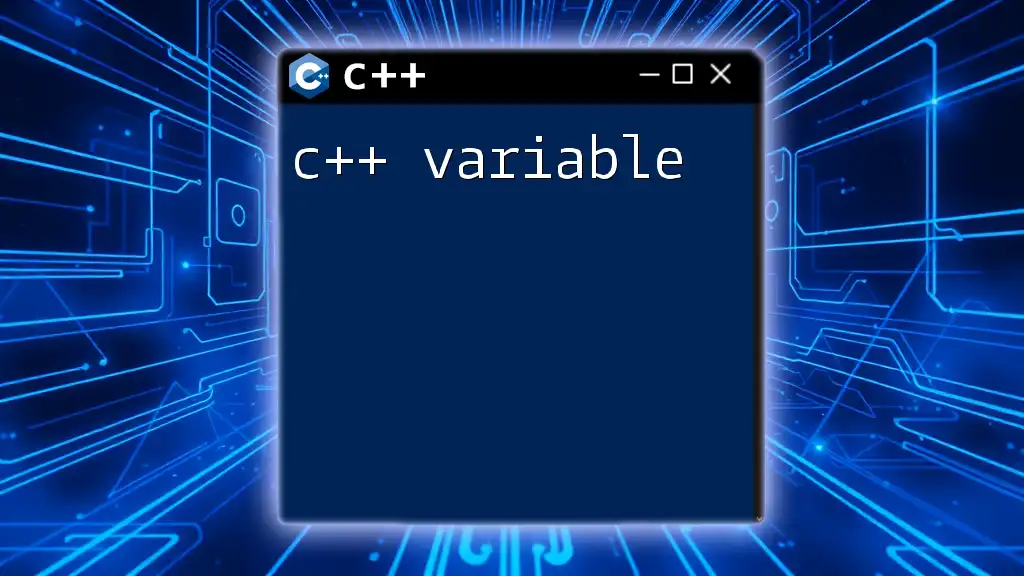A C++ static member variable is a class variable that is shared among all objects of the class, meaning it retains its value across all instances rather than being tied to a particular object.
Here’s a code snippet demonstrating the concept:
#include <iostream>
class Counter {
public:
static int count; // Declaration of static member variable
Counter() {
count++; // Increment the static member variable
}
static int getCount() {
return count; // Return the current count
}
};
// Definition of static member variable
int Counter::count = 0;
int main() {
Counter obj1;
Counter obj2;
std::cout << "Total objects created: " << Counter::getCount() << std::endl; // Output: Total objects created: 2
return 0;
}
What is a Static Member Variable?
A static member variable in C++ is a class-level variable that is shared among all instances of that class. Unlike non-static member variables, which belong to a specific object, a static member variable has a single copy that all instances of the class can access.
Differences Between Static and Non-Static Member Variables
-
Memory Allocation: Non-static member variables are allocated memory for each object created from the class. In contrast, static member variables are allocated memory once, at the start of the program, and persist for the lifetime of the application.
-
Lifetime of the Variable: The lifetime of a static member variable is tied to the program's execution. It is created when the program starts and destroyed when the program ends. Non-static members, however, are created when an object is instantiated and destroyed when the object goes out of scope.
-
Accessibility and Visibility: Static member variables can be accessed without creating an instance of the class, while non-static member variables require an object to be accessed.

How to Declare a Static Member Variable in C++
Syntax for Declaring Static Member Variables
To declare a static member variable, you use the `static` keyword in the class definition. Here’s an example:
class MyClass {
public:
static int myStaticVariable;
};
Initialization of Static Member Variables
Static member variables must also be initialized outside of the class definition, typically in a source file. This is important because if you try to initialize them inside the class itself, it will lead to multiple definitions if you include the header file in multiple source files.
Here’s how to do it:
int MyClass::myStaticVariable = 0; // Definition outside the class

Accessing Static Member Variables
Accessing Through Class Name
Static member variables can be accessed using the class name. This approach is preferred, as it clearly indicates that the variable is static and shared across all instances of the class.
Example:
MyClass::myStaticVariable = 5;
Accessing Through Class Objects
While it is technically possible to access a static member variable using an instance of the class, it is not recommended. Doing so can lead to confusion and may imply that each object has its own copy of the variable, which is incorrect.
Example:
MyClass obj;
obj.myStaticVariable = 10; // Works, but not recommended

Benefits of Using Static Member Variables
Shared Across All Instances
One of the main advantages of using static member variables is that they maintain a shared state. This can be particularly useful for variables that are meant to represent a common property or a count of objects created from the class.
Memory Efficiency
Because static member variables are allocated a single instance in memory, they can help improve memory efficiency, especially when you have numerous instances of a class that need to share state or information.
Use Cases
Static member variables are often used in scenarios such as counters, configuration constants, or any situation where a common value is shared across multiple class instances. For example, you might use a static member variable to keep track of the number of instances created from a class.

Limitations of Static Member Variables
Thread Safety Concerns
When static member variables are accessed from multiple threads, you can run into thread safety issues. Since static variables share a single memory location, simultaneous access and modifications can lead to unpredictable results or race conditions. It is crucial to use proper synchronization, such as mutexes, when working with static variables in a multi-threaded environment.
Static Member Functions and Limitations
It’s important to remember that static member functions can only access static member variables directly. They cannot access non-static member variables or non-static member functions unless an object is instantiated within the function.

Best Practices for Using Static Member Variables
When to Use Static Member Variables
Static member variables should be used judiciously. They are beneficial for maintaining shared information but can lead to increased coupling and potentially hinder the object-oriented paradigm if overused. Best practices include using them when multiple objects need to share a value or when creating class-wide constants.
Naming Conventions
Naming static member variables clearly is crucial. By following a consistent naming convention (e.g., using a prefix like `s_`), you can enhance readability and quickly indicate the variable's shared nature.
Example:
class MyClass {
public:
static int s_instanceCount; // Indicates this variable is static and shared
};
Avoiding Global State
Using static member variables can sometimes feel like creating global state within a class context. This can lead to issues with maintainability and testing. To avoid complications, limit static member variables and consider design patterns that promote encapsulation and separation of concerns.

Conclusion
Static member variables in C++ provide a powerful tool for managing shared data across all instances of a class. However, with this power comes the responsibility to understand their implications, especially around memory management, thread safety, and maintainability. By following best practices and using static variables judiciously, developers can leverage their strengths while minimizing potential risks.

Additional Resources
For further learning about C++ static member variables, you can explore the following resources:
- C++ official documentation on classes and static members.
- Recommended books and online courses that thoroughly cover this topic and C++ programming in general.

Examples Section
Real-World Example
Consider a scenario where you want to track the number of instances of a class that have been created. Using a static member variable makes this easy:
class MyClass {
public:
static int instanceCount;
MyClass() {
instanceCount++;
}
};
int MyClass::instanceCount = 0;
Common Mistakes to Avoid
Be cautious when accessing static member variables from within static member functions. Remember that static member functions do not have access to non-static members unless they have an instance, which can lead to confusion and unintended behavior. Always ensure you are clear about the scope and purpose of your static variables to avoid design flaws.

















